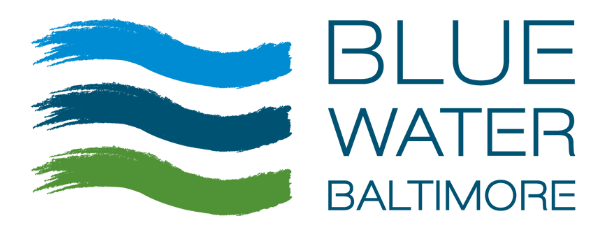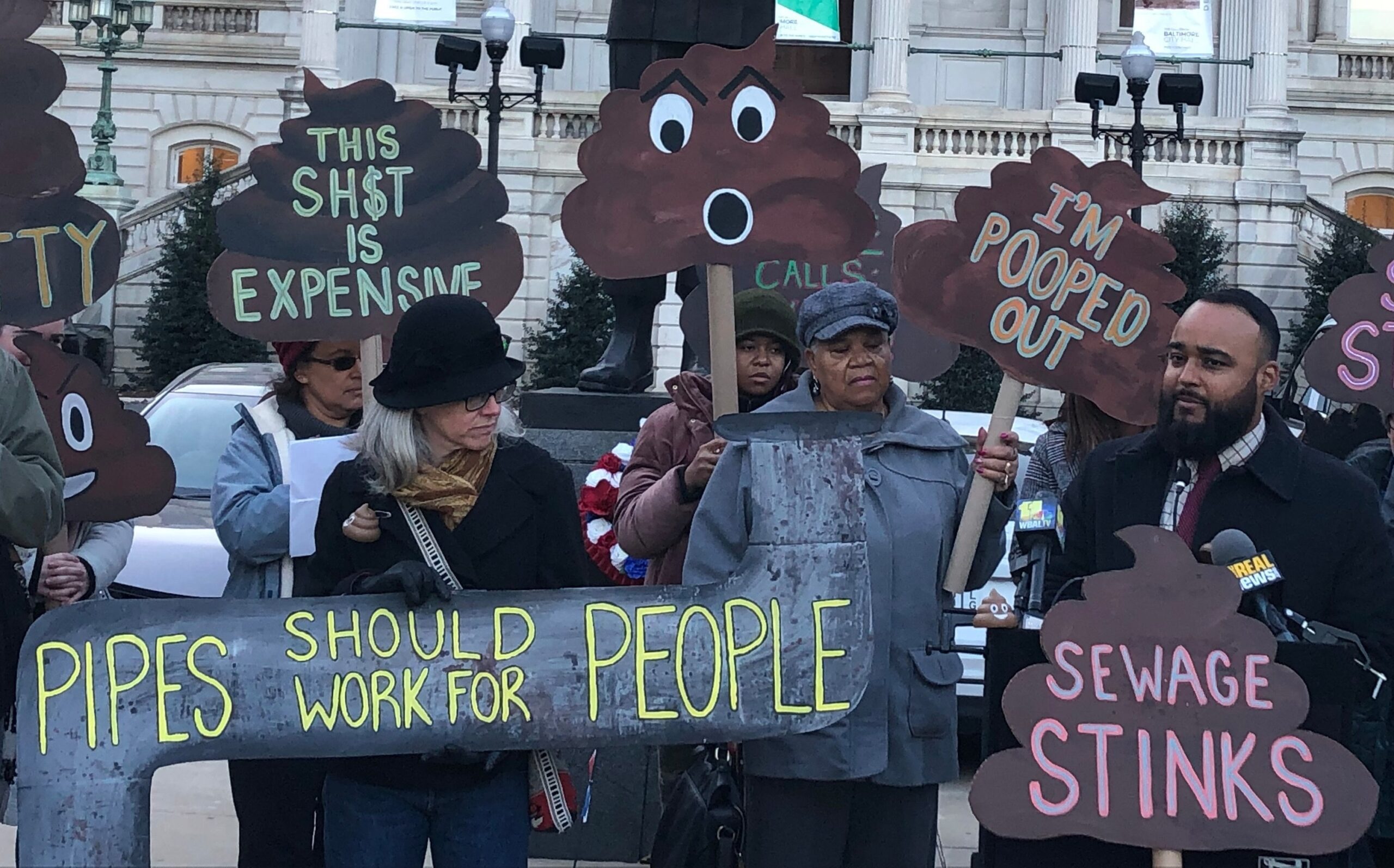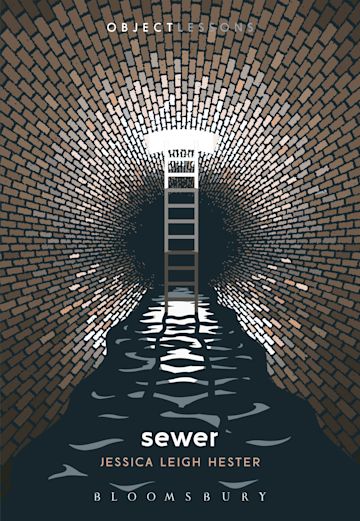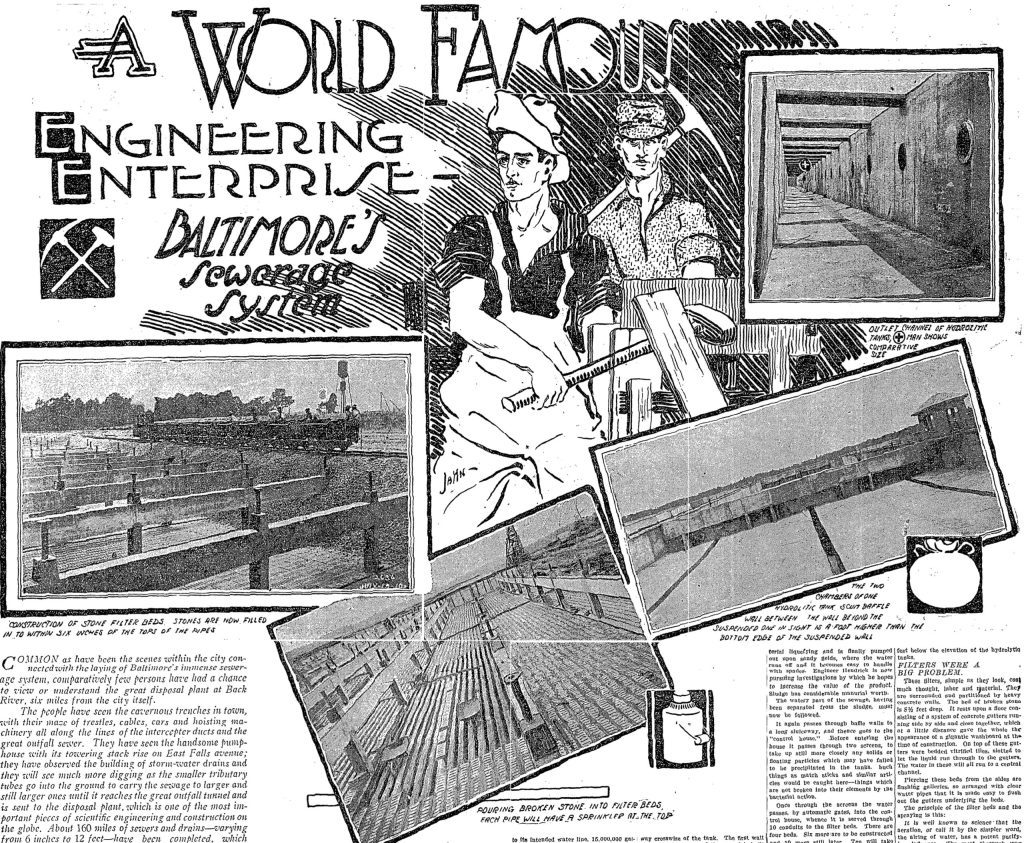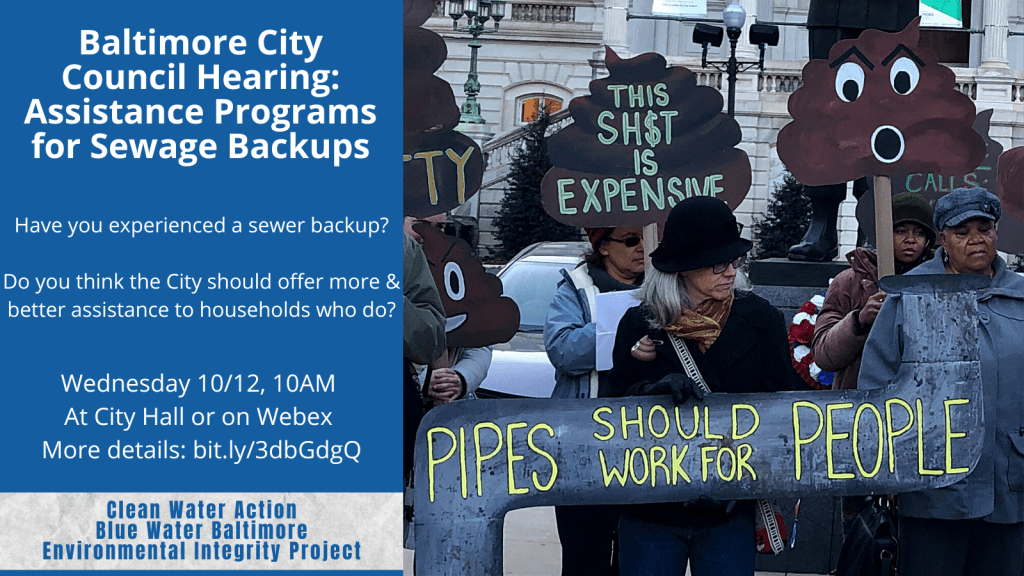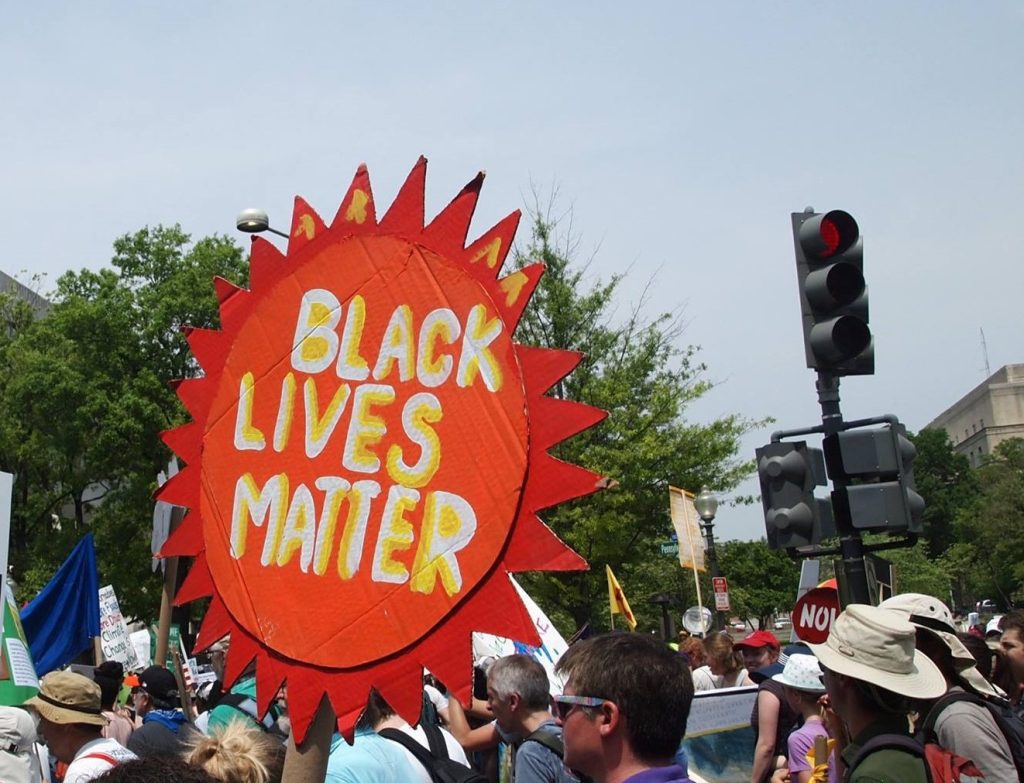Press Statement on Baltimore City DPW’s Sewer Consent Decree Annual Public Meeting

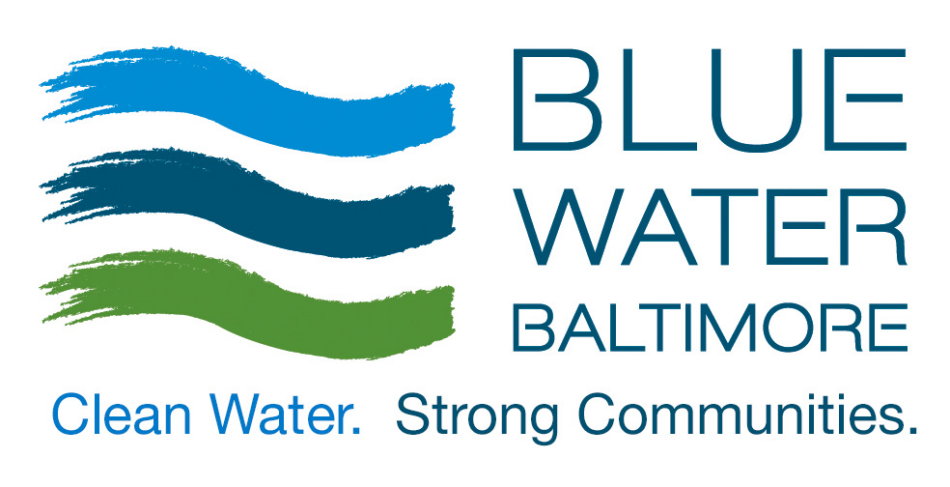

Advocates and Communities Demand Sewer Backup Assistance Program Expansion
January 18, 2024
Contact:
- Alice Volpitta, Blue Water Baltimore: [email protected], (410) 236-9136
- Jennifer Kunze, Clean Water Action: [email protected], 240-397-4126
Well over $1 Billion of taxpayer money has been invested in underground pipe projects and improvements at the Back River and Patapsco wastewater treatment plants. Significant progress has been made. Yet rainfall and other conditions continue to overwhelm Baltimore’s sewer system and cause dangerous overflows and backups into our streets, streams, and homes. These events can cause and contribute to severe illness, costly property damage, algae blooms, fish kills, and much more. Baltimore deserves better for its people and its environment.
According to the timeline that Baltimore City, MDE, and EPA agreed to in 2017 under a settlement called a Modified Consent Decree, all of the city’s “structured overflow” points in the sewer system should have been closed and no longer contributing to sewage in our waterways by July 2022. But the worst offenders, like the discharge pipe along the lower Jones Falls trail, are still wide open, and the work to shut them down is now several years overdue. Sewage continues to gush out of these pipes in heavy rain events, sending millions of gallons of untreated waste into our local streams and rivers.
In addition, for nearly a decade, residents have called for the city to treat sewage backups into their homes as a serious public health and financial threat, but Baltimore continues to leave most residents facing sewage backups to handle it on their own, in defiance of federal orders. Baltimore City continues to fight to restrict its assistance programs to only sewage backups that occur during wet weather, despite the fact that far more backups occur during dry weather than wet weather.
State and federal agencies have ordered Baltimore City to expand the scope of its program for assisting residents with backups of sewage into their homes, events which pose severe risks to health and potentially unmanageable costs to Baltimore households. Instead of complying with regulators’ orders and protecting residents, the city is engaging in a lengthy and costly dispute resolution process. In May 2023, the U.S. Environmental Protection Agency and the Maryland Department of the Environment told the city in no uncertain terms that they must help people who have a sewage backup in their home that was caused by an issue with the city-owned portion of the pipes – rain or shine. However, Baltimore is challenging the order by invoking the dispute resolution process of its 2017 Consent Decree with EPA and MDE.
On Thursday January 18th, the Baltimore City Department of Public Works will host its seventh annual public meeting to discuss progress under the Modified Consent Decree for sewage overflows. As environmental advocates committed to elevating these concerns, we invite you to join us at 1800 Washington Boulevard at 6pm to hear updates on these issues, and demand quicker action that will help residents and our shared waterways.
Community contacts also available to speak to the press:
- Doris Brightful, [email protected], 410-466-9637. Doris had her latest sewer backup on January 10, and was unable to access assistance from the Sewage Onsite Support program. Doris testified about her experience of repeated sewer backups to the City Council on November 13, 2019 (recording).
- Linda Batts, [email protected], 410-627-8121. Linda was involved in the formulation of the Sewage Onsite Support program from 2019-2020 as DPW’s first ever Director of Equity and Environmental Justice
Are you dealing with sewage backing up into your home? Filling out this survey will help us advocate for you and others in your situation.
